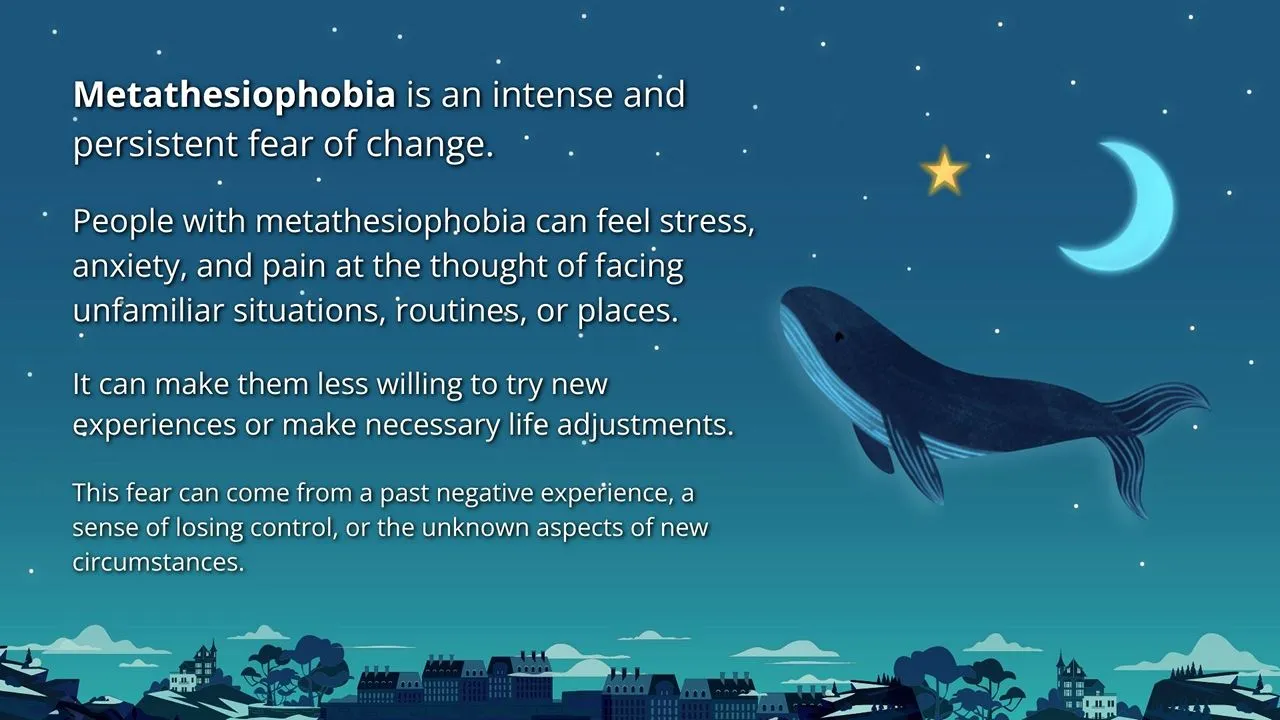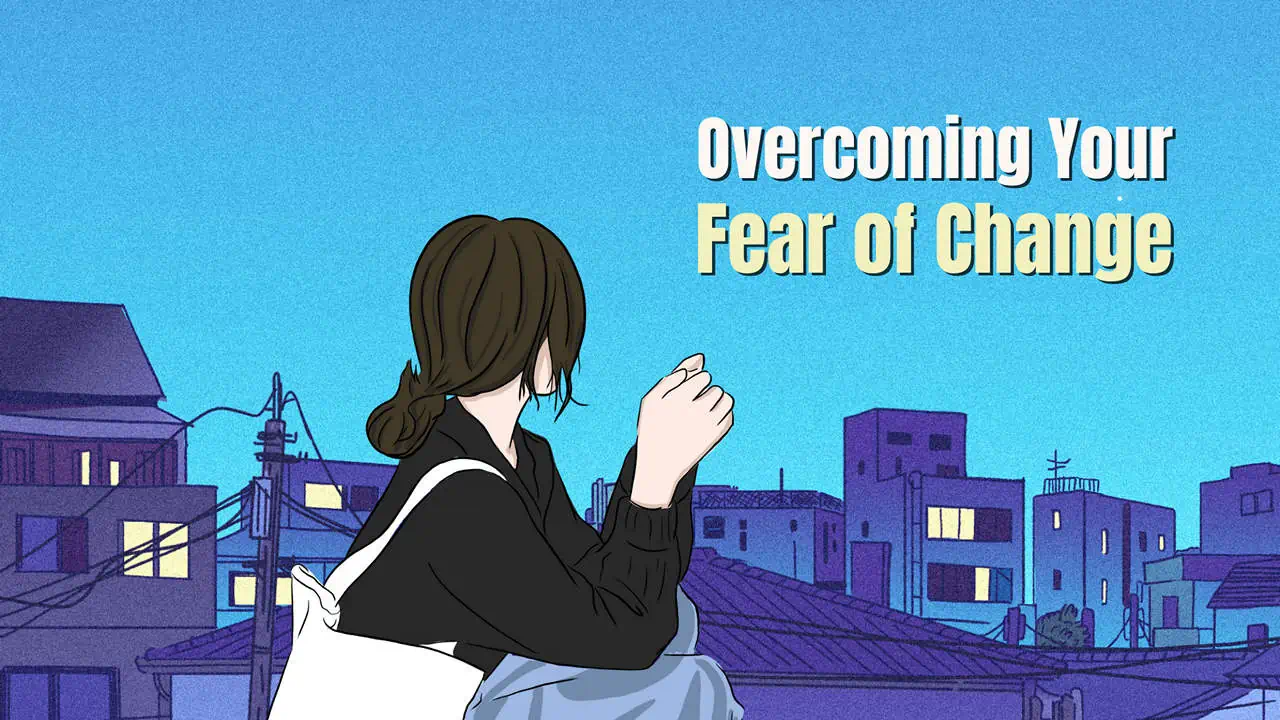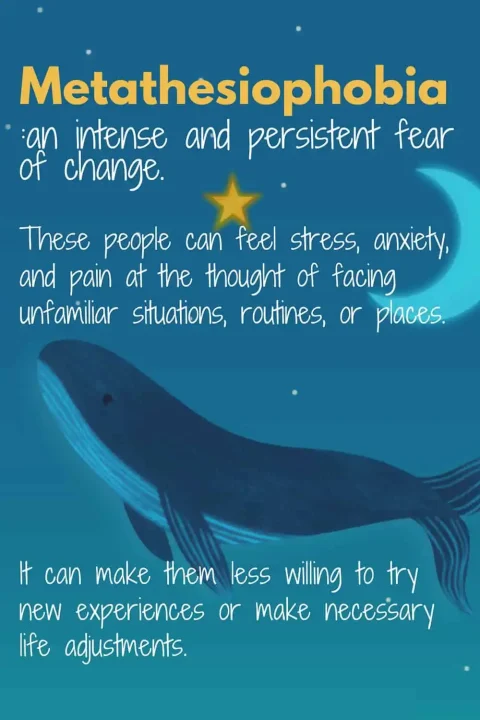Today's Friday • 8 mins read
— By Dr. Sandip Roy.
Change feels scary to most of us. But in some, any possibility of change might trigger a panic episode.
That is called metathesiophobia (pronounced as meta-the-sio-pho-bi-a): an irrational fear of change. It is a common human experience.
Takeaways:
- Change can be daunting, and it’s all too human to fear and resist it.
- Conquering your fear of change can boost your self-confidence, foster personal growth, hone your problem-solving skills, lower stress and anxiety, and unlock new opportunities to be happy.
- Even if you don’t find success and glory outside your comfort zone, tackling the fear of change and the unknown can positively transform your self-limiting beliefs.
Why Does Change Feel Scary
Humans evolved fear as a defense mechanism to survive in the early, predator-filled environments. But why do we have a fear of change in today’s times?
Humans are creatures of habit, and we find comfort in predictability. Change disrupts our sense of stability and familiarity, and pushes us toward uncertainty and potential loss.
Our brains are wired to ensure survival by recognizing familiar patterns. When faced with change, it sends signals of a potential danger to our lives.
That evolutionary mechanism warns us to stick to our familiar, safe, and known environment. But change signifies unfamiliar, unsafe, and unknown.
Past negative experiences with change can intensify our metathesiophobia. Our brains are likely to remember these instances, causing intense resistance to future changes.

How To Overcome The Fear of Change & The Unknown
We can rewire our thought patterns to overcome our instinctual fear of change. It’s a gradual process that begins with the courage to confront the unfamiliar.
Here are some practical steps to help you deal with change:
1. Start Small
When change seems too big, break it down. Tackle it piece by piece, making each step feel more doable. This way, you won’t feel overwhelmed and can celebrate small victories along the way.
2. Learn About the Change
Fear often comes from not knowing. Take time to understand the change you’re facing. The more you know, the less scary it becomes.
Fear is a difficult emotion to manage when it comes to love. For some info on understanding it, check out “Decoding The Love Signals of A Fearful Avoidant”.
3. Write Down Your Thoughts
Put your fears and hopes on paper. Writing helps clear your mind and makes your feelings easier to understand. It’s like talking to a friend who listens without judgment.
Reassure your brain that these cautionary signals are unreasonable in a modern world.
4. Focus On the Present
Use mindfulness, like meditation or deep breathing, to keep yourself grounded. This helps reduce worry about what’s next.
Mindfulness is simple, but if you are new to it, a guiding hand can be quite helpful. Download our free guide: “7 Steps of Mindfulness For Beginners”.

5. Surround Yourself With Support
Talk to friends and family who encourage you. Sharing your concerns can lighten your load, and you might find others have gone through similar experiences.
6. Think About What You’ve Overcome
Remember times you’ve faced change before and made it through. This reminds you of your strength and ability to handle new challenges.
7. Imagine the Good That Can Come
Think about the positive things change could bring. Visualizing success can make the idea of change more exciting than scary.
8. Keep Your Expectations Real
Understand that adapting to change might have its ups and downs. Accepting that not everything will go perfect can help you stay resilient.
9. Reframe Challenges as Opportunities
Try to see change as a chance to grow and learn. Each challenge is an opportunity to become stronger and more capable. Managing stress can be as simple as practicing a supportive grounding technique.
10. Find Exercise-based Activities That Relax You
Exercise-based activities like Zumba, dance-yoga, or shuffling are great for reducing stress. Try these activities to improve your fitness, flexibility, and mental well-being:
- Piloxing: A mix of Pilates, boxing, and dance, this high-energy workout is both empowering and effective for building strength and stamina.
- Barre Fitness: Combining ballet-inspired moves with elements of Pilates, dance, yoga, and strength training. Barre focuses on low-impact, high-intensity movements.
- Aqua Zumba: Taking the fun and energetic aspects of Zumba into the pool for a low-impact, water-based workout that’s easy on the joints.
- Hip-Hop Aerobics: A cardio workout that uses hip-hop dance moves to create a dynamic and fun exercise session.
- Bokwa: Participants draw letters and numbers with their feet while performing an energizing and addictive cardio workout routine.
- Capoeira Fitness: An Afro-Brazilian martial art that combines elements of dance, acrobatics, and music into a rhythmic, expressive form of exercise.
- BodyJam: A cardio workout that blends the latest dance styles and hottest new sounds to get your heart rate up and your body moving.
- Pound Fitness: A full-body cardio session that uses lightly weighted drumsticks (called Ripstix) to add rhythm and resistance to simulated drumming.
- Bollywood Dance Fitness: Inspired by the high-energy dance sequences in Bollywood films, this workout mixes traditional Indian dance with modern rhythms.
- Swing Fitness: Combines swing dancing steps with a cardio workout to create a fun, upbeat exercise experience.
Seek Professional Help: If your fear of change feels too big to handle alone, talking to a therapist can make a big difference. You don’t have to go through this by yourself.
Why You Must Embrace Change
Without going through change, we won’t be able to find out how much we can tolerate, adapt to, and rise from.
By embracing change, we take control of our destiny, rather than letting circumstances dictate our path. They mark the milestones in our history, highlight our peak experiences, and show how we adapted as people.
We must embrace change if we want to develop personally and professionally. It nurtures our resilience, gives us new skills, and allows us to seize opportunities that might otherwise pass us by.
Some reasons we must not shy away from change:
- Unlocks New Possibilities: Change opens doors to novel experiences, fresh careers, new relationships, or places to live. It unlocks exciting avenues for exploration, personal growth, and life enhancement. Without it, we will stagnate and limit our potential in an ever-changing environment.
- Promotes All-Round Growth: Venturing beyond our comfort zone nudges us to grow personally and professionally, makes us tougher, sharpens our skills, and prepares us for what’s ahead. When you push your boundaries, you learn valuable lessons that no one else can teach you.
- Boosts Self-Confidence: Overcoming the challenges posed by change boosts our belief in our own abilities, encouraging us to tackle future obstacles with increased assurance. Each time you conquer a fear, you understand that you can cope with life’s stresses and rise back up stronger.
- Builds Resilience and Adaptability: Learning to adapt through change strengthens our ability to bounce back from adversity and flexibly approach new situations.
- Sharpens Decision-Making Skills: Embracing change improves our ability to make informed decisions in uncertain life situations. Facing fears head-on trains us to think creatively and come up with creative solutions, which hone our ability to deal with future challenges.
- Improves Wellbeing & Happiness: Positive change can invigorate our lives with new energy and joy, combating feelings of stagnation and unhappiness. Regularly confronting what makes your heart skip a beat makes your fear response stronger, making you less likely to get anxious or depressed.
- Spurs Innovation and Learning: The necessity to adapt to change drives creativity and the pursuit of new knowledge, expanding our perspectives.
- Strengthens Bonds: Facing and overcoming change together can fortify relationships, enhancing the connection with those we value.
- Helps Get Over The Past: Change often pushes us to let go of what no longer serves us, fostering personal evolution and forward movement.
- Facilitates Self-Discovery: Encountering new scenarios through change allows us to learn more about our strengths, weaknesses, values, and aspirations.
Symptoms of Metathesiophobia
- Heart palpitations
- Rapid breathing
- Shaking or trembling
- Sweating, “hairs on end”
- Nausea or gastrointestinal distress
- Inability to form words
- Thoughts of passing away
- Feeling of dread
- Dry mouth
- Choking
Causes of Metathesiophobia
Experts are not clear what causes metathesiophobia.
A common explanation is a child being exposed to the passing away of a loved one in the family. This may have forced them to go through many changes in life. As a result, they became fearful of any change in life, presuming them all as negative.
- Negative experiences with change in the past
- Past traumatic experiences with change
- A fear of the unknown or of failure
- A lack of control or security in one’s life
- A lack of support or encouragement from others
Final Words
A comfort zone is a beautiful place, but nothing ever grows there.
Every change comes with some discomfort, which, when overcome, is a sign that you have evolved. The way of the doer is to stay committed and adaptable.
Maintain Persistence. “Persist and resist,” as Epictetus, the great Stoic philosopher, used to say.
In the long run, you always hit what you aim at. So, start today. Embrace a little change in your daily routine, and watch yourself transform into the new person you want to become.
As Neale Donald Walsch, the author of Conversations with God, said,
“Life begins at the end of your comfort zone.”
√ Also Read: Can A Narcissist Change? Uncover The Surprising Revelations.
√ Please spread the word if you found this helpful.
» You deserve happiness! Choosing therapy could be your best decision.
...
• Disclosure: Buying via our links earns us a small commission.
